Vertical AI agents are quickly becoming the next transformative force in enterprise software. These super-specialized AI tools are designed to perform workflows autonomously, offering companies a new level of operational efficiency. Just as SaaS revolutionized business operations in the 2000s by replacing traditional software and hardware, vertical AI agents are taking a step further by complementing or even replacing human labor.
While fully autonomous agents are still on the horizon, today's vertical AI solutions are bridging the gap by combining decision support capabilities with targeted automation. These startups are solving specific pain points across industries, setting the stage for a future where AI-powered tools redefine the way we work.
In this article, we'll take a look at some of the most promising vertical AI startups. They are at the forefront of this paradigm shift, solving problems in healthcare, finance, operations, and more.
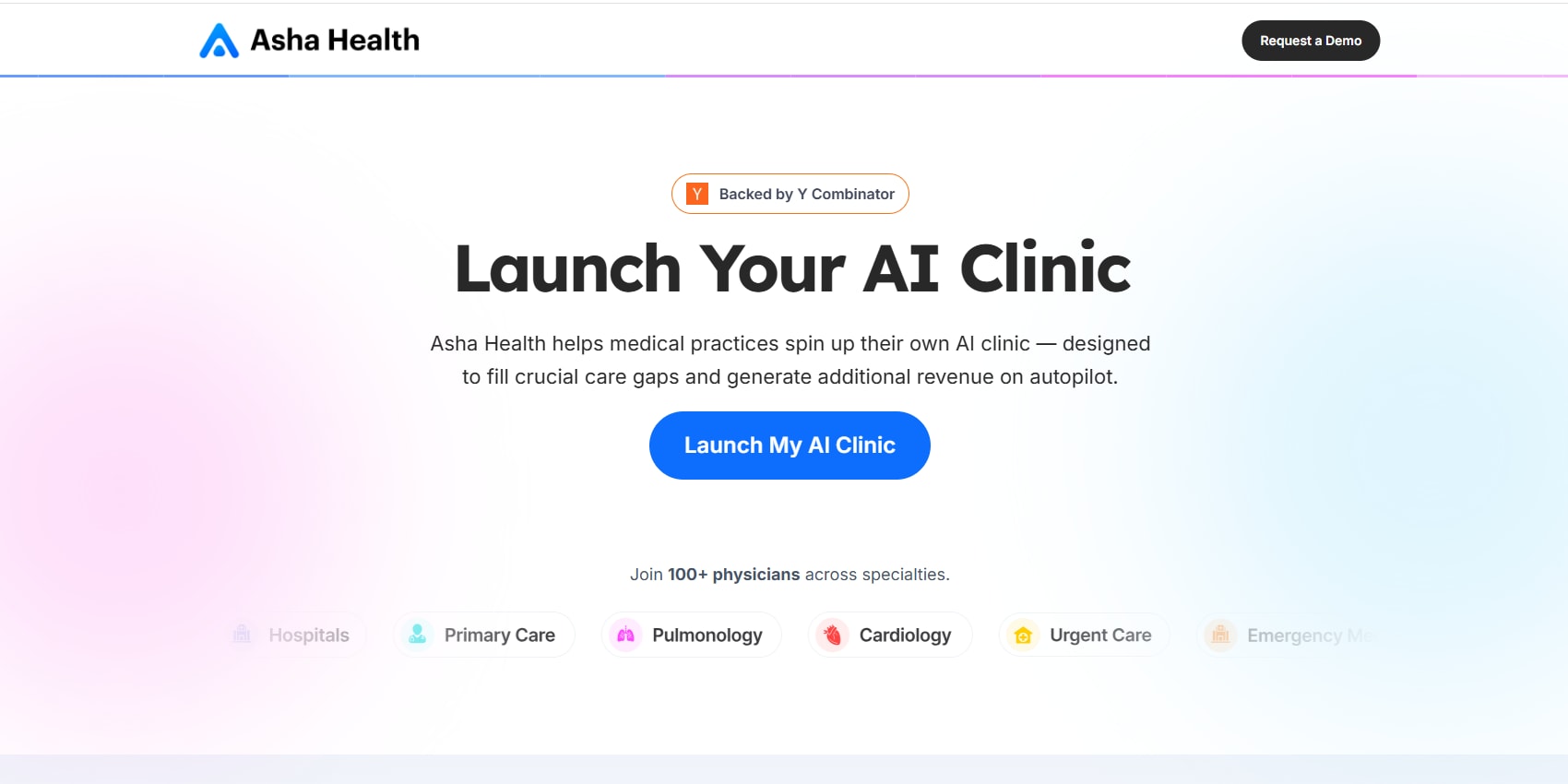
Asha Health enables medical practices to launch AI-powered clinics that aim to address care gaps for chronic condition patients requiring more than isolated physician visits once every few months. Such patients need consistent education, guidance, accountability, and supervision. While brick-and-mortar clinics are too overburdened to address this problem, AI-powered clinics can offer consistent support for such patients between physician visits. This approach helps improve health outcomes while generating revenue automatically. With AI agents and auxiliary staff, Asha Health guides patients, reducing the burden on providers, increasing margins on care delivery, and enhancing patient engagement and retention—all with minimal effort from the practice.
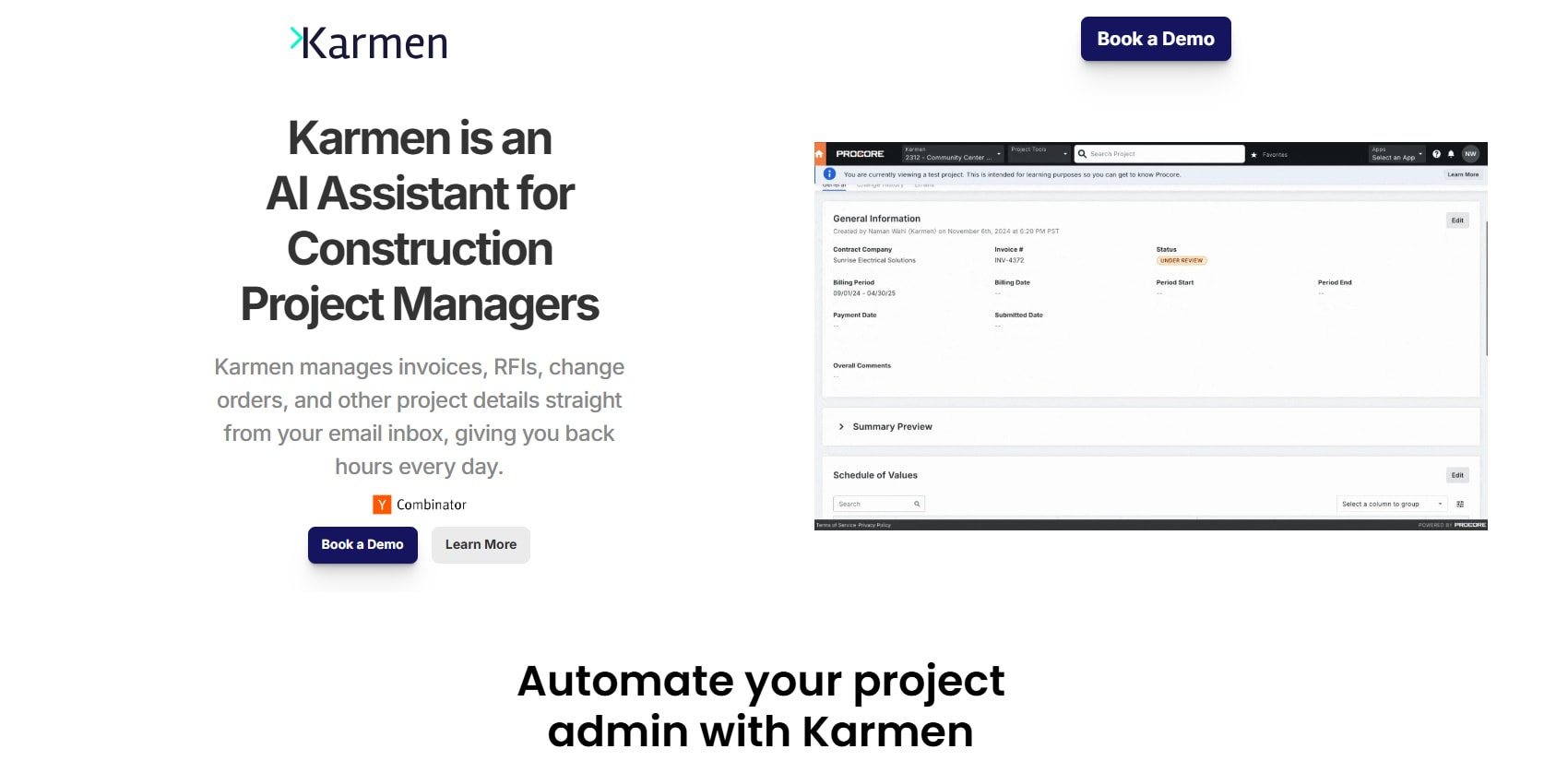
Karmen is an AI assistant designed to help construction project managers automate administrative tasks such as invoice approvals, RFI (Request for Information) management, and change order tracking. With Karmen, project managers can link their emails, texts, ERPs, and project management software (like Procore) to automate the manual process of entering data from correspondence. The tool matches correspondence to the right projects and subcontractors and reduces errors, like invoicing mistakes, that lead to costly delays. The solution saves project managers around 3 hours daily by reducing manual work, like sifting through emails and uploading data. It aims to improve efficiency, reduce administrative burden, and enhance accuracy in construction project management.
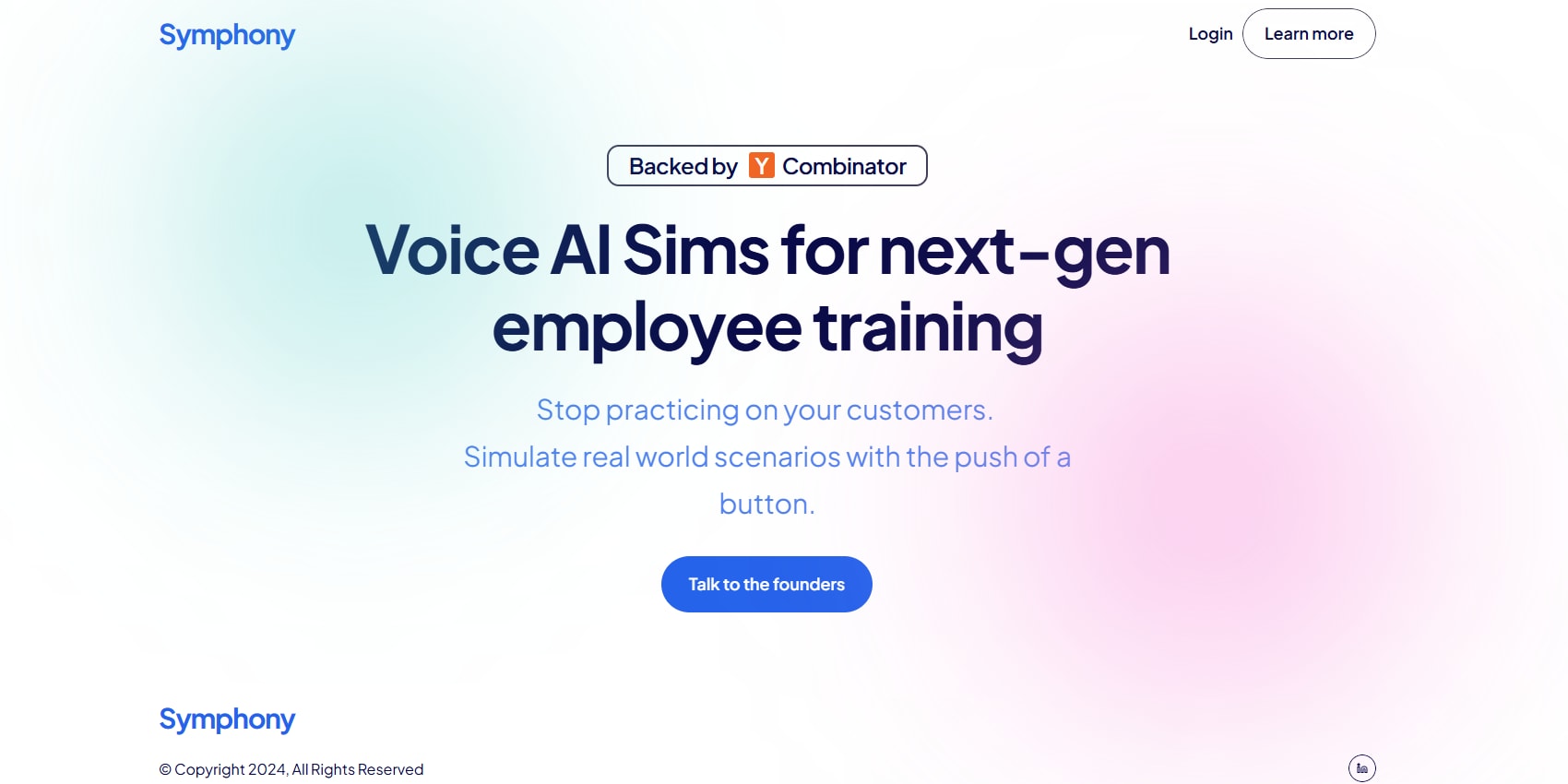
Symphony is a conversational AI Agent designed to streamline recruiting and employee training processes. It is particularly tailored for customer-facing roles, ranging from CSRs, customer success managers, and sales associates to healthcare professionals and maintenance & repair staff. Symphony automates key tasks like candidate screening, scheduling, and training simulations. It evaluates all inbound applications against the custom criteria for the role to surface the best matches. Then, Symphony's AI interviewer, Eve, conducts live voice screenings to assess candidates' communication skills and emotional intelligence and handles administrative tasks like scheduling interviews. It saves recruiters from spending their time on initial screens while removing human bias from the process. It also improves the overall experience for both recruiters and candidates and reduces time-to-hire to as little as 2 days. Symphony also offers voice AI simulations that allow employees to practice real-world scenarios. Users can create an infinite number of simulations that allow their teams to practice - avoiding costly mistakes with real customers. The tool integrates with all major ATS systems, ensuring easy implementation for businesses.
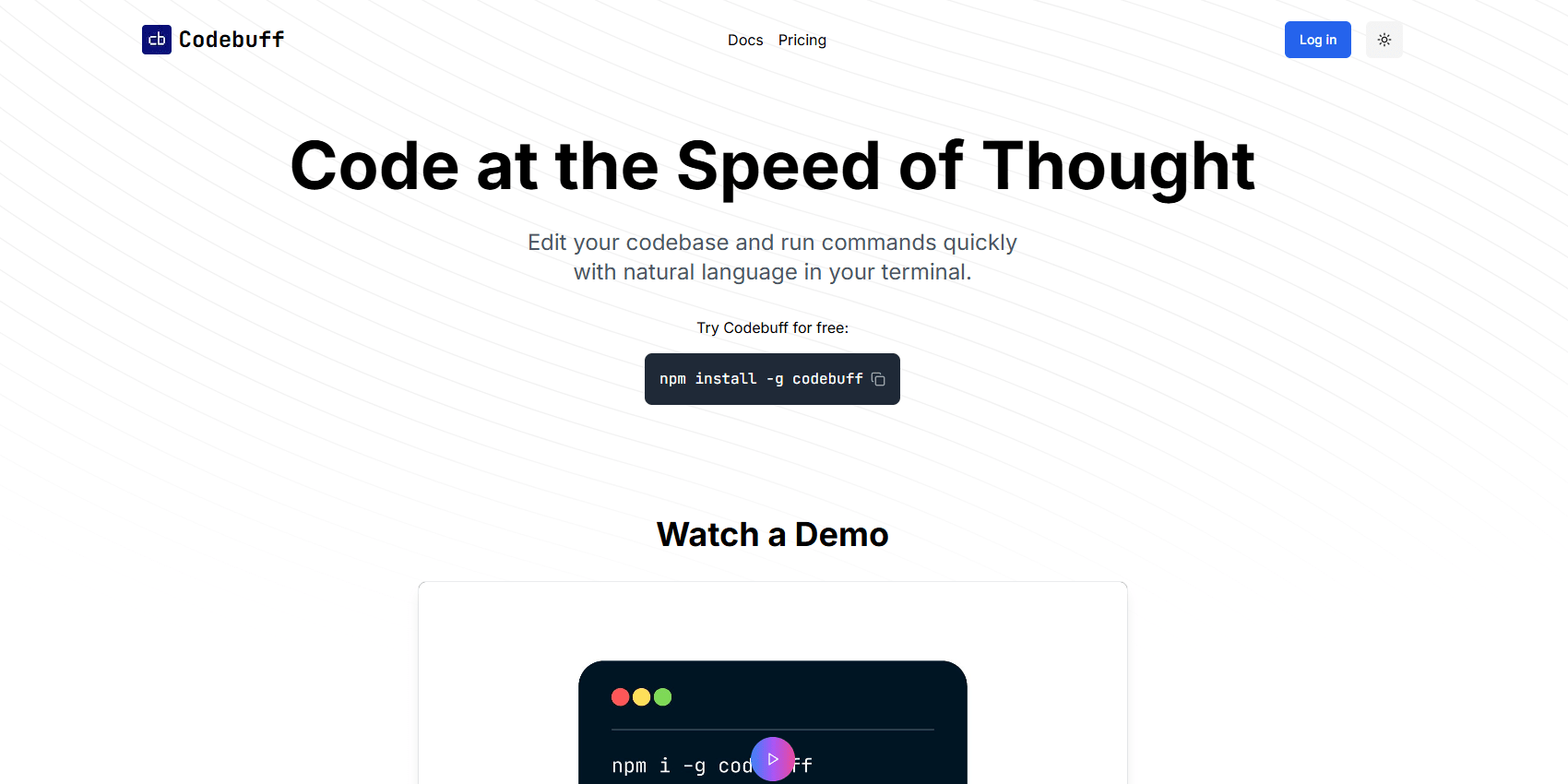
Codebuff is an AI-powered coding assistant designed to streamline development by automating code editing and terminal tasks. It integrates directly with the developer's terminal and codebase, allowing them to simply chat with it and instruct it to make code changes, install packages, run tests, and check for errors. Unlike other coding agents, Codebuff automatically selects relevant files for context on each message, improving its understanding of the codebase and saving developers time. It can edit multiple files simultaneously, write code for every tech stack, and be used across different development environments like VSCode, Cursor, Vim, Emacs, Replit, and even plain text editor.
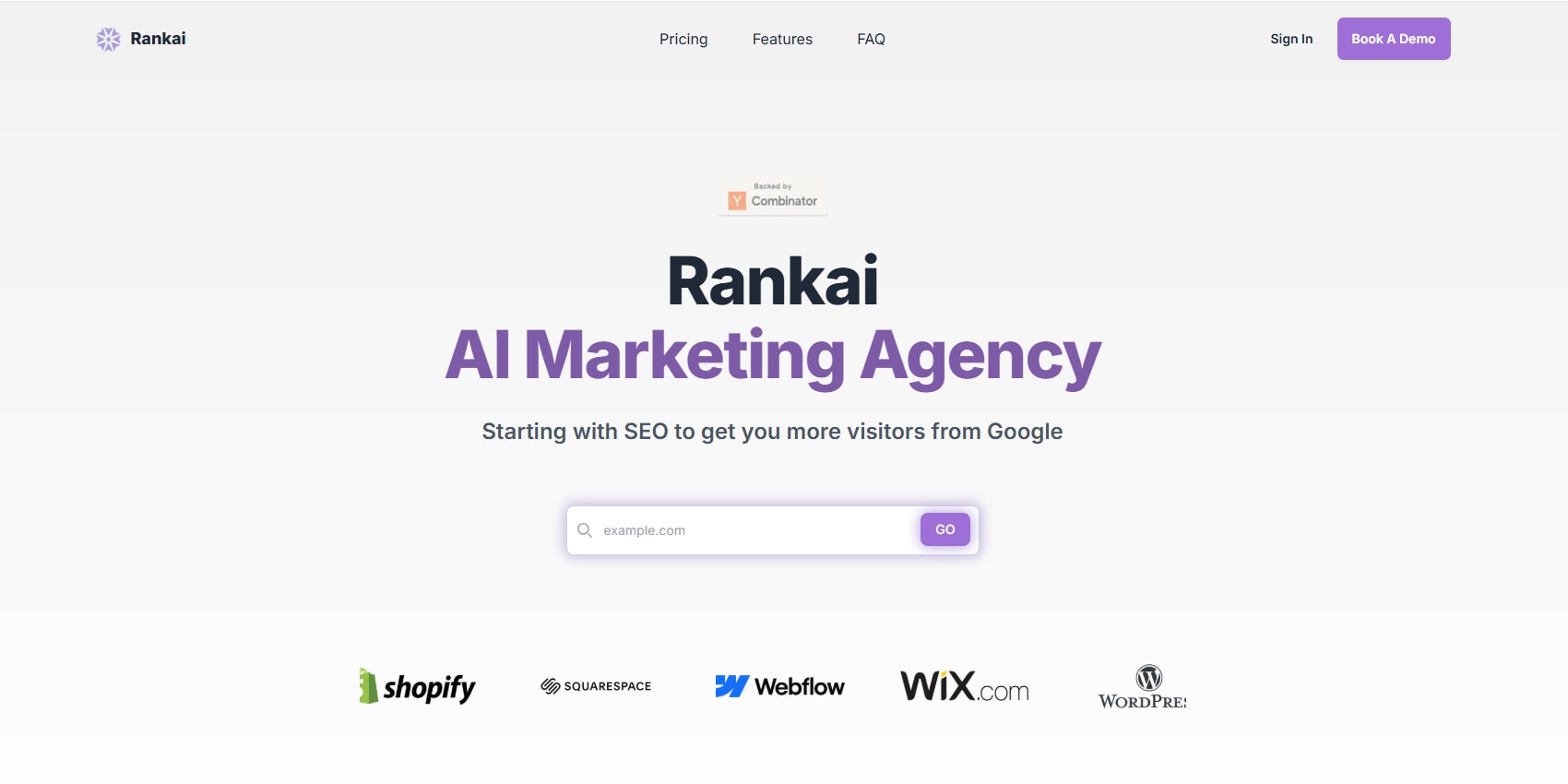
Rankai is a startup that develops AI agents capable of strategizing and executing marketing objectives just like traditional marketing agencies. Right now, Rankai offers AI agents that fully automate the entire SEO process, making SEO services 20x more affordable. The AI agent can crawl websites to understand the business. It recommends technical SEO fixes based on Google's guidelines. It can also research tailored target keywords, create keyword-optimized content, and publish fixes and weekly blogs directly to the website. These service-oriented solutions offered at a fraction of the cost of expensive and human-powered marketing agencies aim to totally replace them.
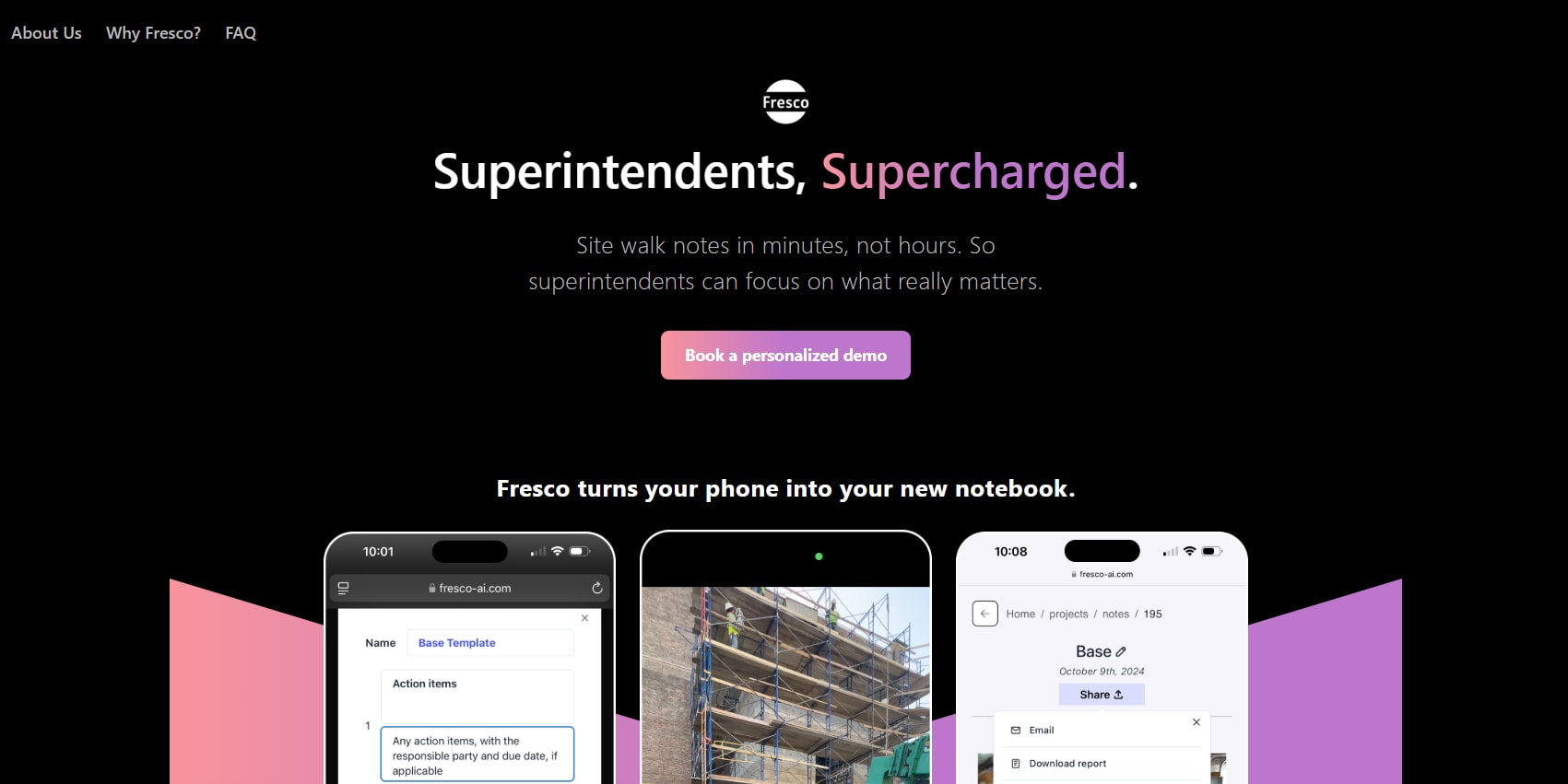
Fresco is an AI-powered copilot designed to automate the documentation process for construction superintendents. It acts as a digital assistant that understands and generates data from site observations. Project management tools like Procore and ACC have dramatically increased documentation requirements, so superintendents and project managers often spend up to 3 hours daily on documentation due to increasing compliance and stakeholder requirements. By turning a phone into an AI-powered scribe, Fresco records videos during their site walkthroughs, narrating observations. Then the tool extracts key details, such as action items and images, and formats them into comprehensive reports, reducing note-taking and documentation time by up to 90%. It can integrate with leading project management software like Procore and ACC, process videos, and extract relevant information to create detailed reports in less than a minute. By automating these processes, Fresco enables superintendents to complete in minutes what typically takes hours.
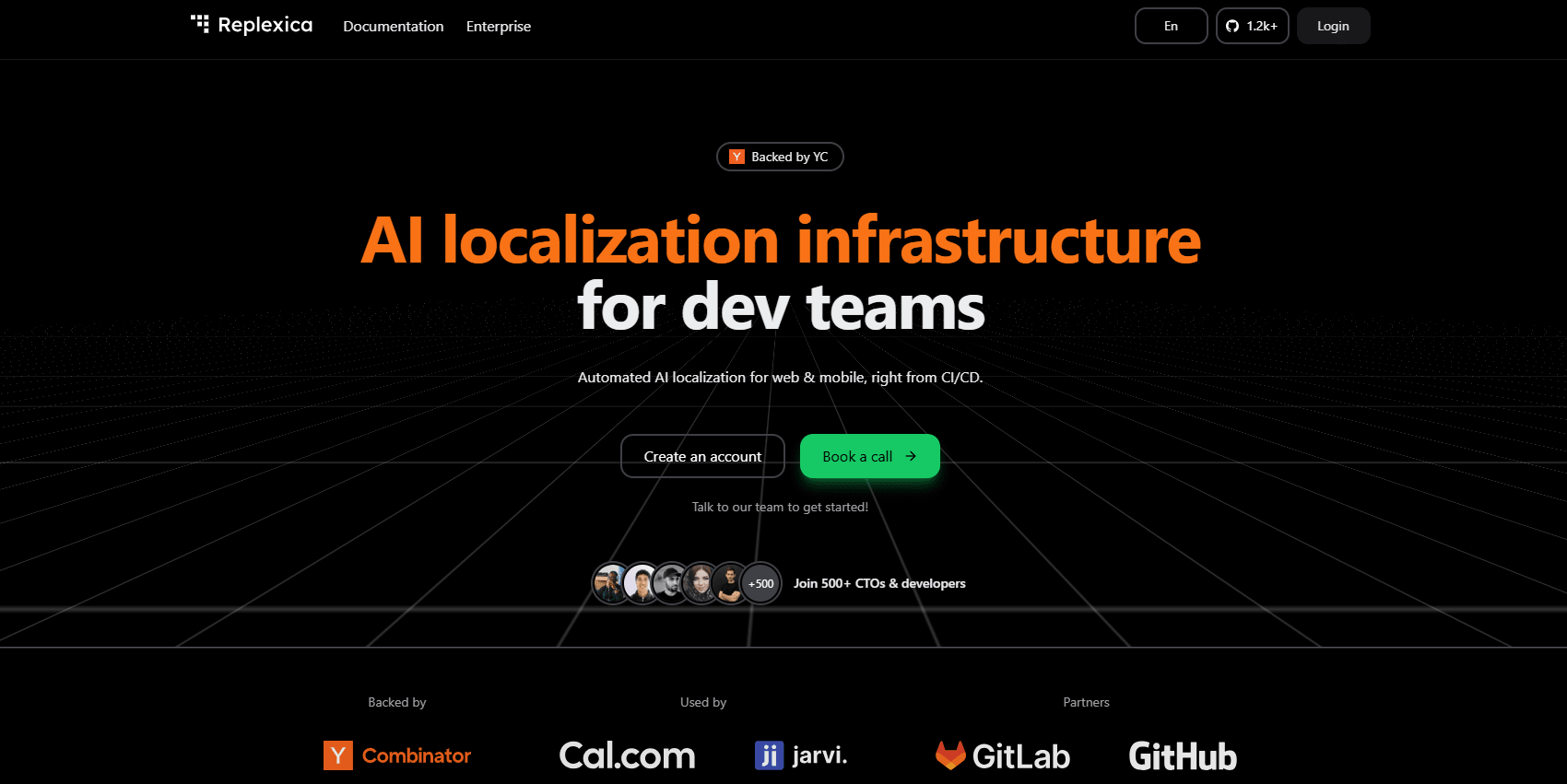
Replexica automates the software localization process for development teams, eliminating manual work and translation management. The traditional localization process is slow, with bottlenecks caused by back-and-forth communication between developers and translation agencies. This costly process slows down millions of teams worldwide and delays software delivery by 1-14 days. Replexica's AI agent generates pull requests with translations when developers commit UI code changes, speeding up localization by 100x. Replexica supports over 60 languages and creates authentic translations tailored to native speakers' expectations, unlike traditional tools like Google Translate. This solution helps teams localize faster, ship more frequently, and avoid bottlenecks.
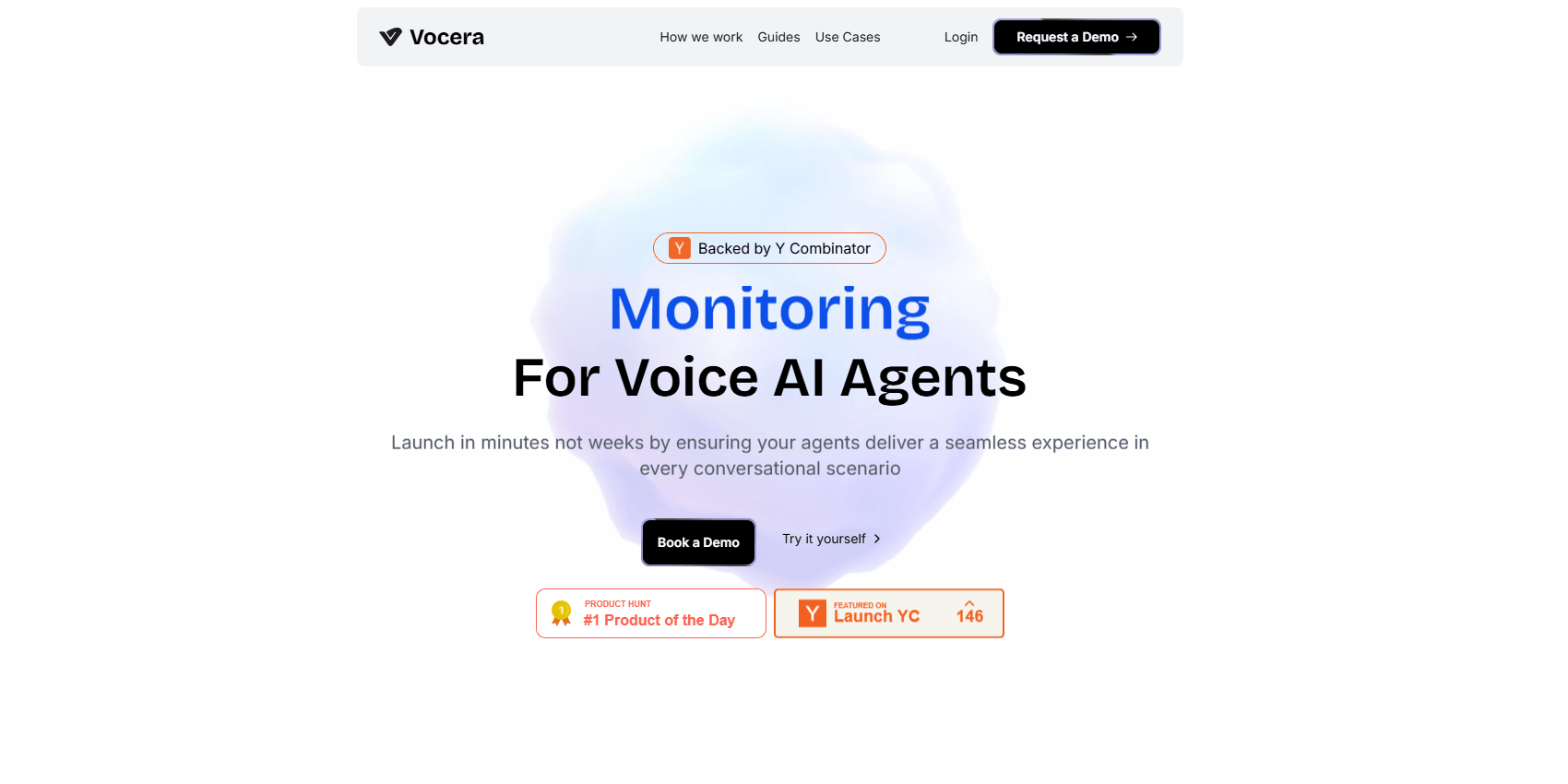
Vocera is a solution that automates the testing of AI voice agents like virtual receptionists, customer support, or sales representatives. It helps companies overcome challenges in manually testing voice agents, speeding up development, improving reliability, and reducing the risk of failure in production. Vocera can simulate and replicate real-world conversations, as well as replay old conversations through AI-driven workflows, personas, and past interactions. It can run thousands of scenarios in parallel. With Vocera, companies can prove the reliability of their AI voice agents before they go live. They can identify issues early, seamlessly test every update, and scale their operations efficiently.
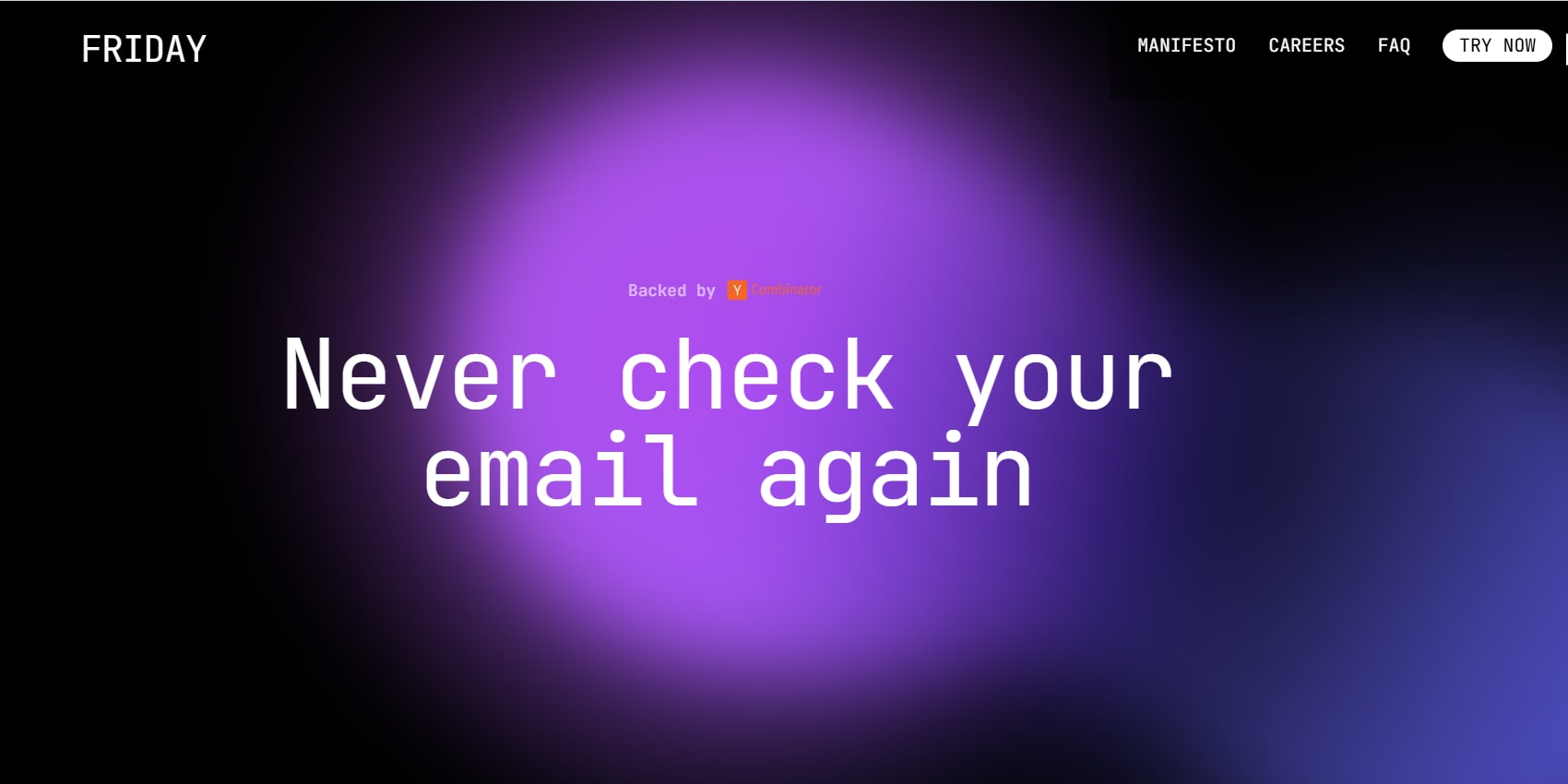
Friday is an AI-powered assistant that allows users to efficiently manage their email inbox. Rather than a Vertical agent, it is more of a general-purpose AI agent designed for a variety of domains and use cases. Unlike using traditional email tools that only speed up the process, or hiring a human assistant, which is costly and introduces privacy concerns, Friday completely eliminates the need to handle most emails, securing privacy and 100x speed. Users can tell Friday the kinds of emails they get using natural language, and then define actions that it should take once those emails come in. Friday can take over thousands of emails, sorting through spam, sifting through newsletters for important tidbits, and responding to routine emails. The tool can review your previous email history, perform a web search to gather relevant information, and use its knowledge to craft a personalized email for you. So Friday can draft responses, perform outreach and follow-up, and text users' important notifications so they can focus on important emails that actually require a personal touch.
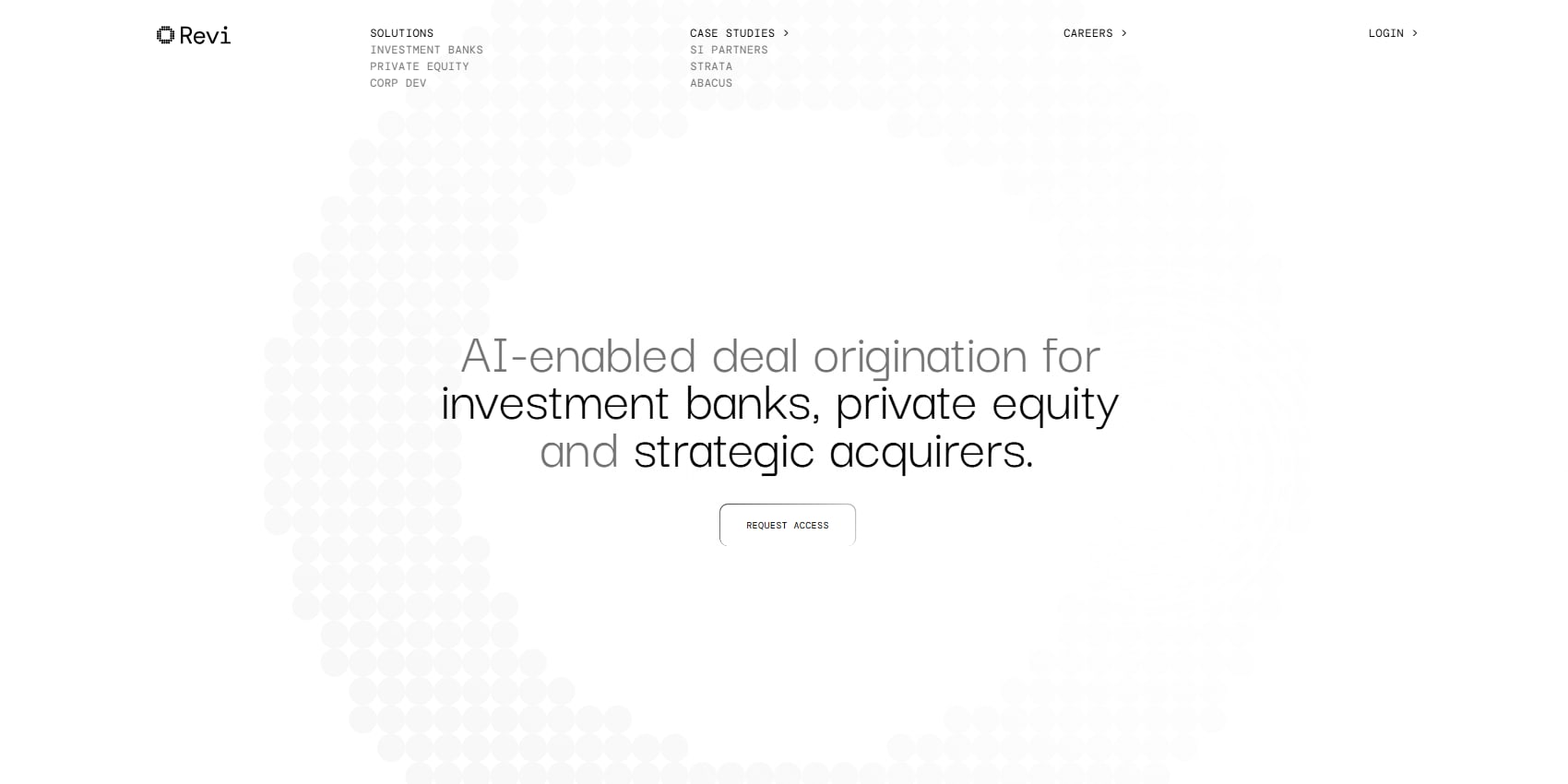
Revi is an AI-powered platform that helps Investment Banks, Private Equity (PE) firms, and Corporate Development teams source new mergers and acquisition (M&A) deals. Traditional M&A deal sourcing is time-consuming and inefficient, requiring extensive manual work. Teams usually need hours on manual list building, target research, outreach, and market tracking, inevitably making the deal origination process slow and unscalable. By using agentic workflows, Revi replicates the end-to-end deal origination process, making it faster and scalable while maintaining high precision. The platform identifies potential targets by analyzing large data sets, automates the outreach process, crafting personalized communication and managing follow-ups, and continuously tracks market activity. Revi has already attracted clients like KPMG and platforms backed by KKR, Nordic Capital, and ICG.
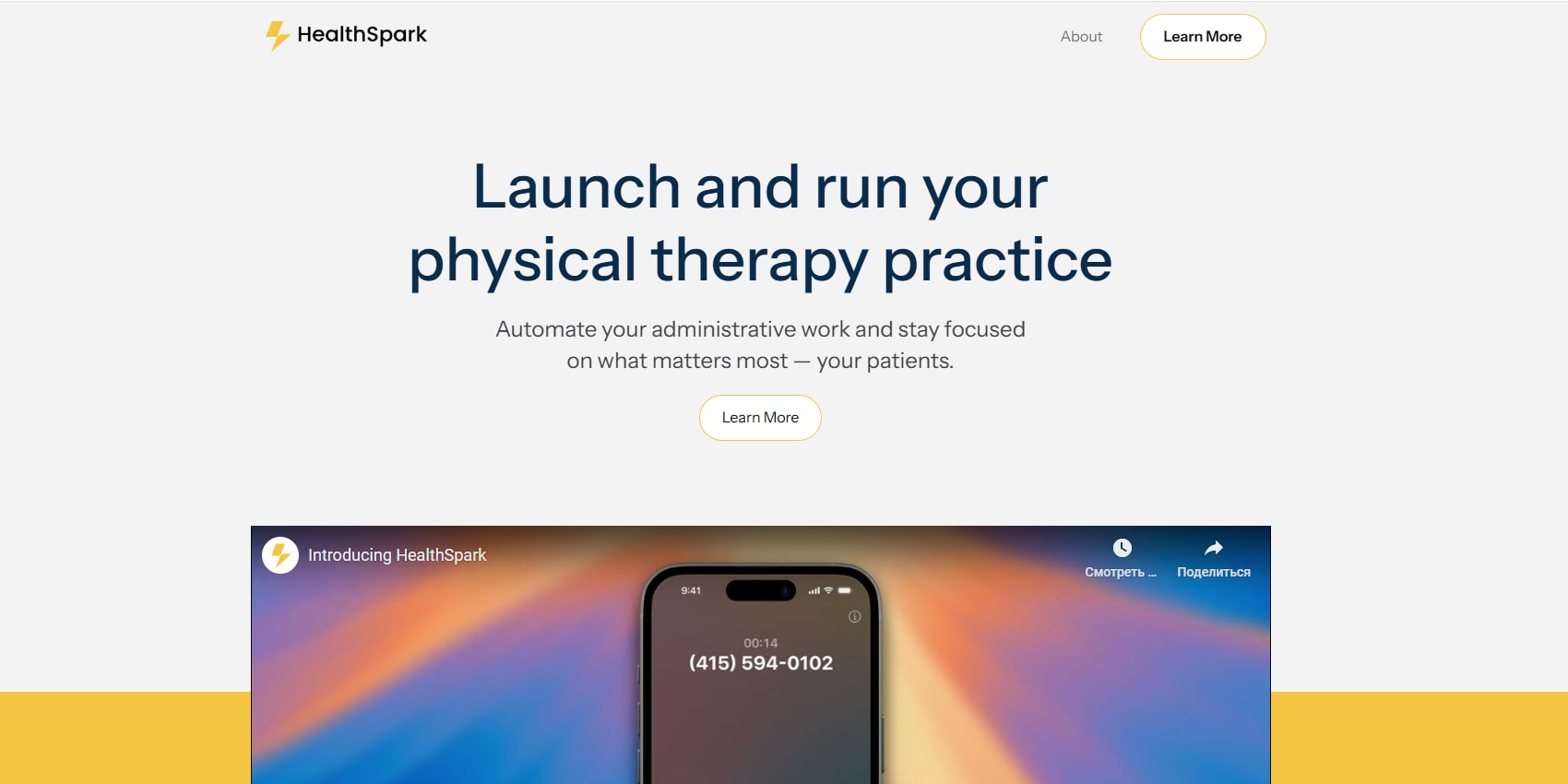
HealthSpark is an AI-powered all-in-one platform designed to help independent physical therapists willing to work on their own terms to launch and manage their personal practices. The solution automates administrative tasks usually carried out by support staff, such as scheduling, insurance verification, handling calls and texts, and charting. The platform can offer easy patient scheduling, smart messaging, and an AI-assisted medical receptionist that can pick up phone calls, answer common questions, and book appointments with human-like conversation. It can also automatically generate SOAP notes or draft them from scratch. HealthSpark reduces the operational burden on physical therapists associated with running a practice so they can focus on providing care and growing their practice without the stress of managing day-to-day administrative work.
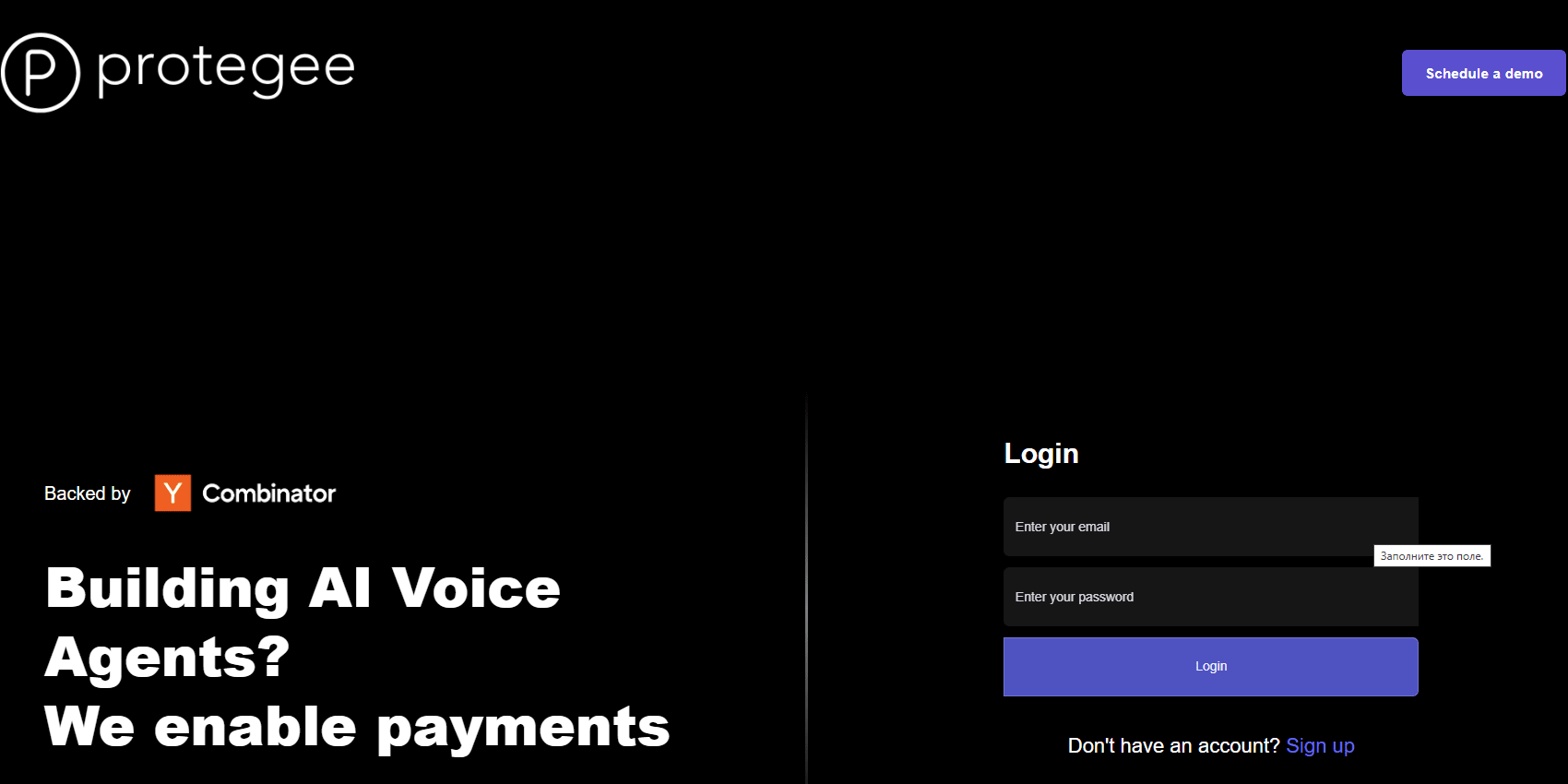
Protegee is a startup offering a payments API for AI voice agents. While not a Vertical AI agent itself, it is part of a vertical AI agent ecosystem, enabling voice AI agents to securely handle payments over the phone, addressing key issues like compliance, security, and fraud. Protegee's API simplifies the process by allowing AI voice agents to pass payment details to Protegee's platform. They collect the details, process transactions securely, and then return payment confirmation. This solution aims to resolve common pain points in voice payment transactions. Current payment solutions involve handing the call to a human agent or texting a payment link, which frustrates customers and hurts conversion rates. Or they can hallucinate, like selling nonexistent products. Protegee plans to expand into web and agent-to-agent transactions, positioning itself as a critical infrastructure tool for the emerging agentic economy.

OpenClinic is an EHR platform that makes it easy for any doctor or hospital to open their own digital healthcare clinics with 99% AI involvement and 1% doctor oversight. The platform collects patient medical histories via an empathic AI-driven voice interface, performs medical reasoning to narrow down likely diagnoses, and suggests evidence-based suggestions for each patient. Doctors can quickly review concise, text-based summaries of AI-generated cases to make final decisions on patient care. Patients and doctors don't need to interact in real-time, such as through video or phone calls. Instead, patients can provide their information (e.g., medical history or symptoms) at any time, and doctors can review this information and make decisions later at their convenience. OpenClinic aims to address the physician shortage and overwhelming patient volumes, streamlining care delivery and allowing doctors to focus on high-value decision-making. OpenClinic started by powering digital medical clinics but plans to expand into traditional healthcare facilities, transforming how healthcare is delivered across both digital and brick-and-mortar settings.
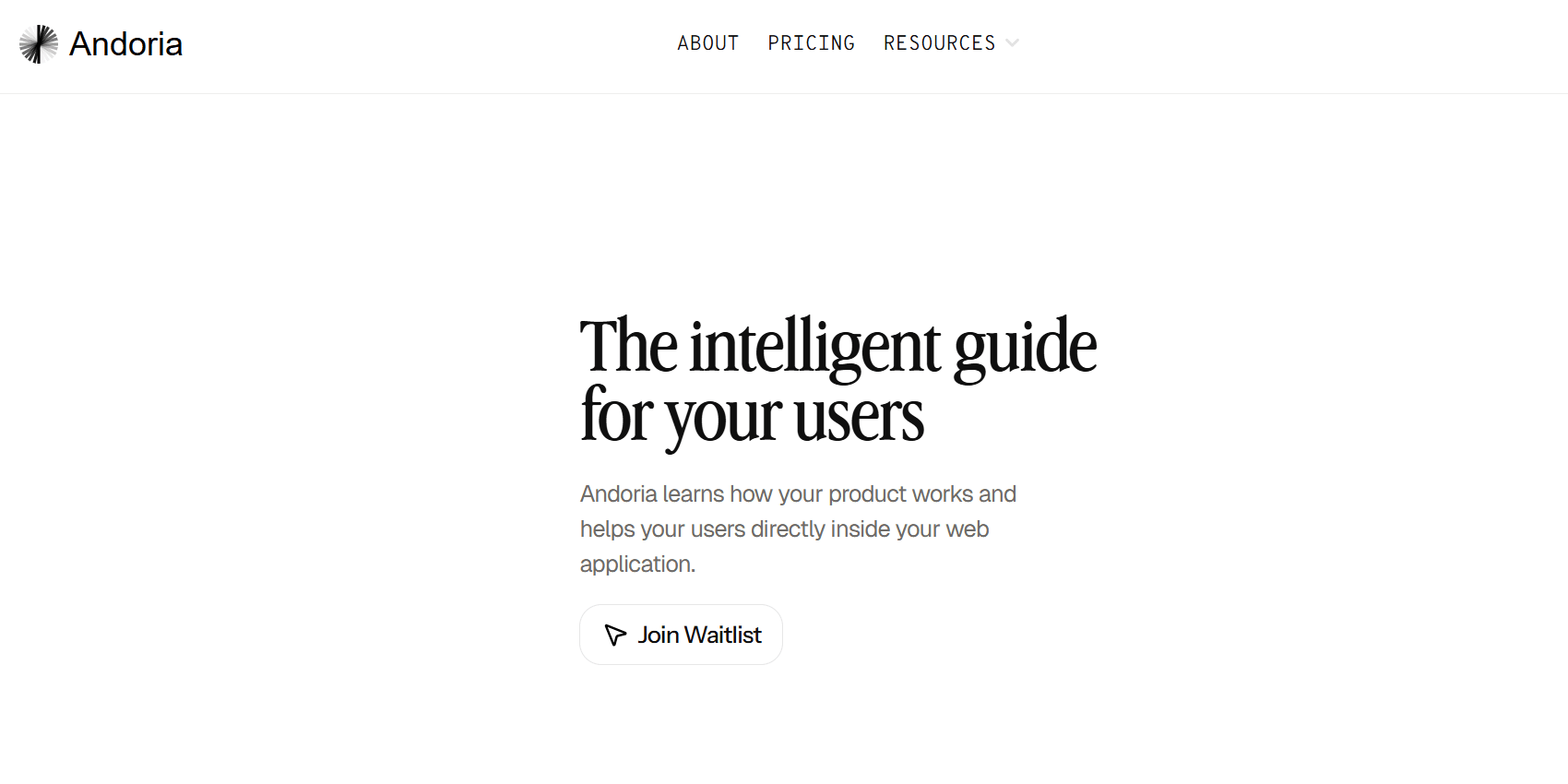
Andoria is an AI-powered customer support agent designed to change how users interact with web applications by creating in-app walkthroughs. Traditionally, software users learn how to use their software on their own, whether it be through documentation, video tutorials, or simply by self-investigation. Unlike conventional AI customer support solutions that only give back text responses, Andoria offers a more interactive, hands-on approach, working as a dedicated user assistant to show them how to use the app whenever they need help. The platform learns how the web app works and gathers user-specific data, such as background and goals. When a user encounters difficulties, Andoria provides a step-by-step walkthrough, showing what actions they should take. This solution reduces user friction and drives faster user activation from day one. The main benefit of Andoria is its simplicity; integrating it into a website only requires adding a script tag to the HTML. The AI then takes care of generating the necessary walkthroughs.
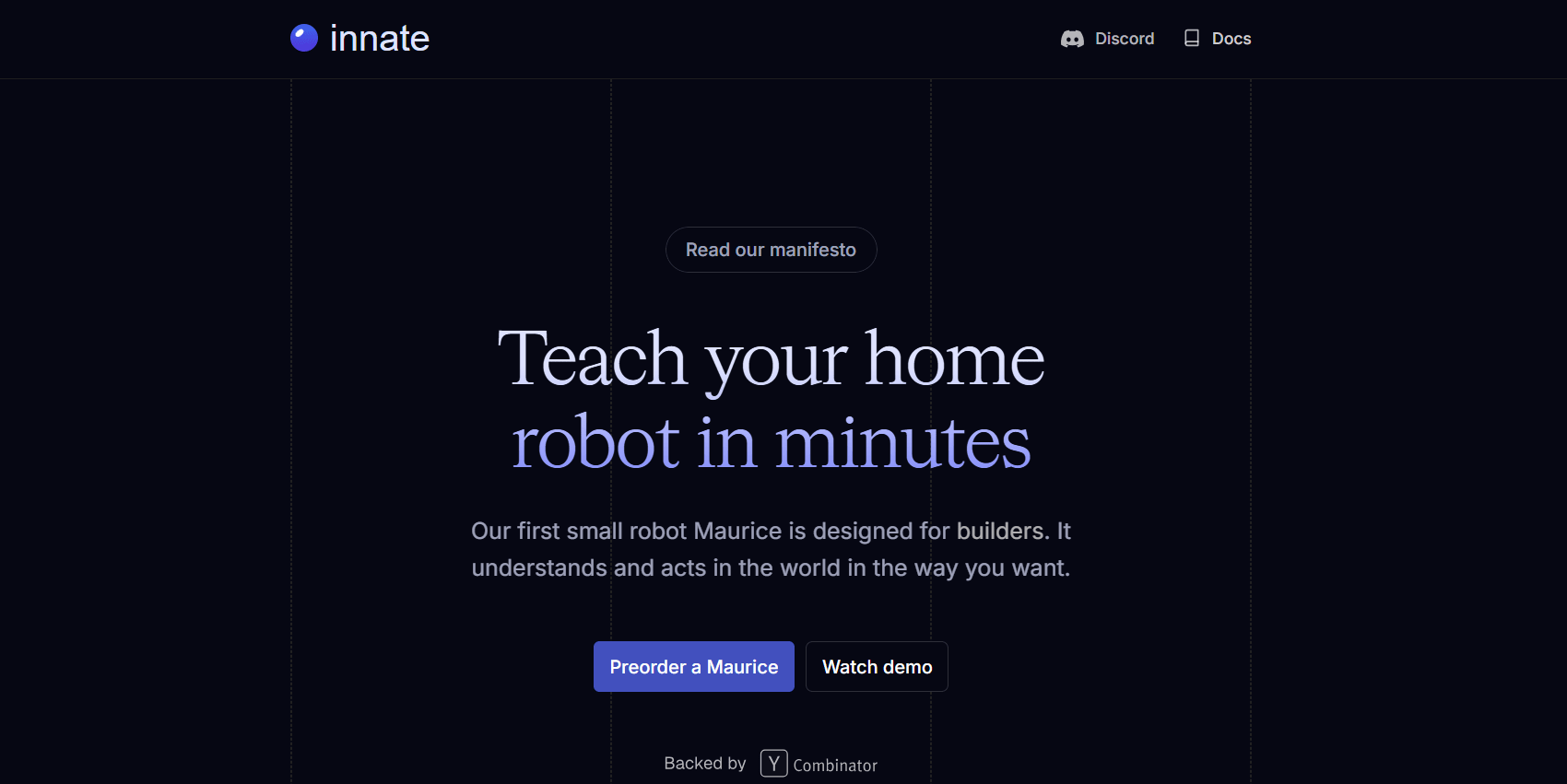
Innate is pioneering the development of innately intelligent, general-purpose robots that can navigate the environment, perform physical tasks, interact with people, and reason. Their first product, Maurice, is a mobile robot with a trainable arm. The core of Innate's innovation lies in its teachable AI brain. It can be customized, trained in minutes, and adapted for diverse use cases like security or home assistance. Users can prompt it, chat with it, and teach it physical tasks. Maurice learns the user's space, remembers context, and makes autonomous decisions about where and what to do next. Innate's mission is to create intelligent robots that feel alive, enabling users to easily teach and deploy robots across a wide range of tasks.
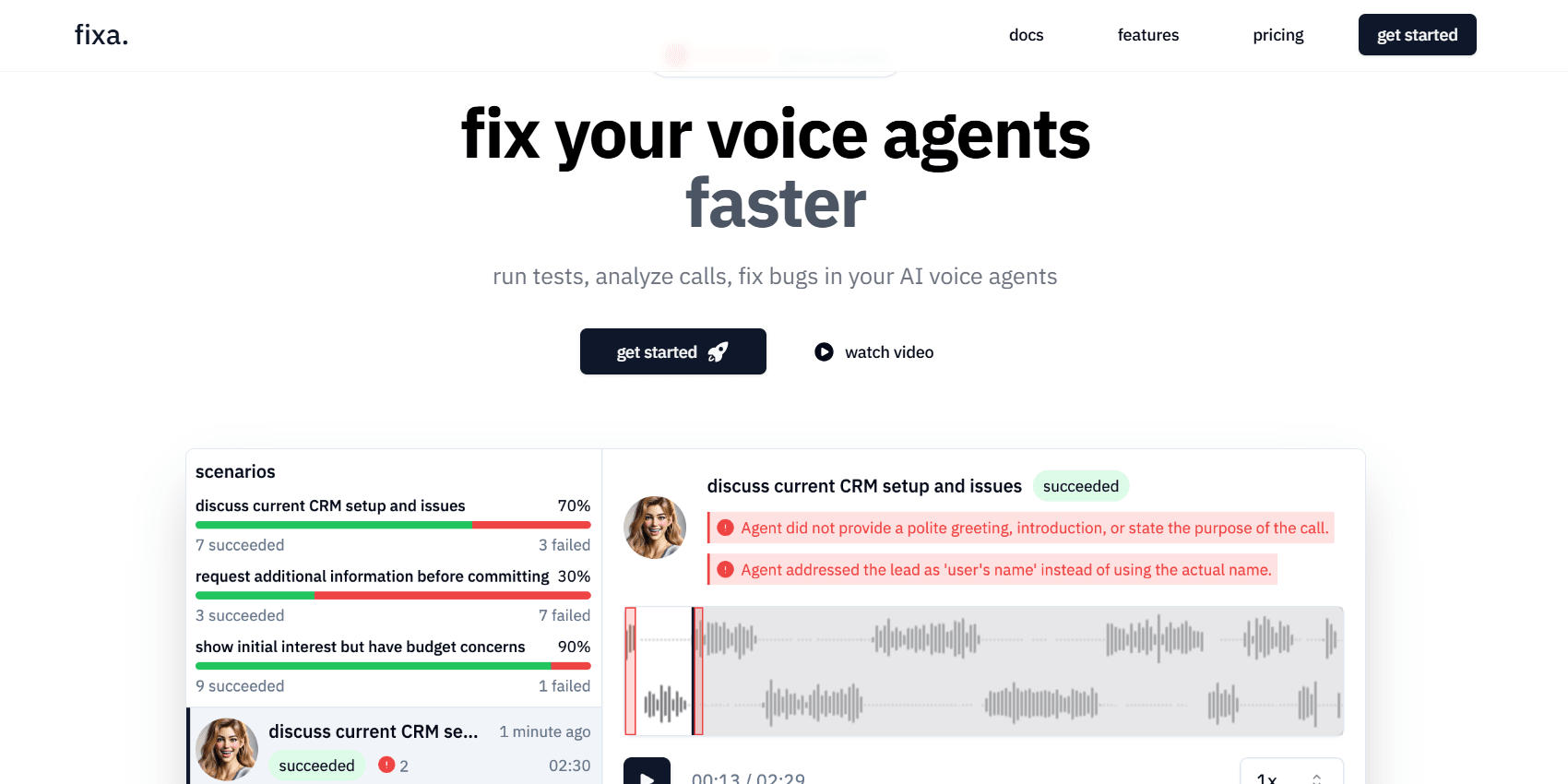
Fixa is designed to help developers identify and fix bugs in AI voice agents more efficiently. It serves as a diagnostic and debugging agent for AI voice systems rather than an agent that directly interacts with users. It automates the process of finding issues like hallucinations, interruptions, transcription errors, and sentiment errors, which previously required manual effort, such as reviewing call transcripts or listening to recordings. Fixa offers precise, actionable insights to pinpoint problems and proposes prompt adjustments to improve performance. The platform reduces reliance on manual testing and ensures voice agents operate smoothly in both simulated tests and real-world production calls.
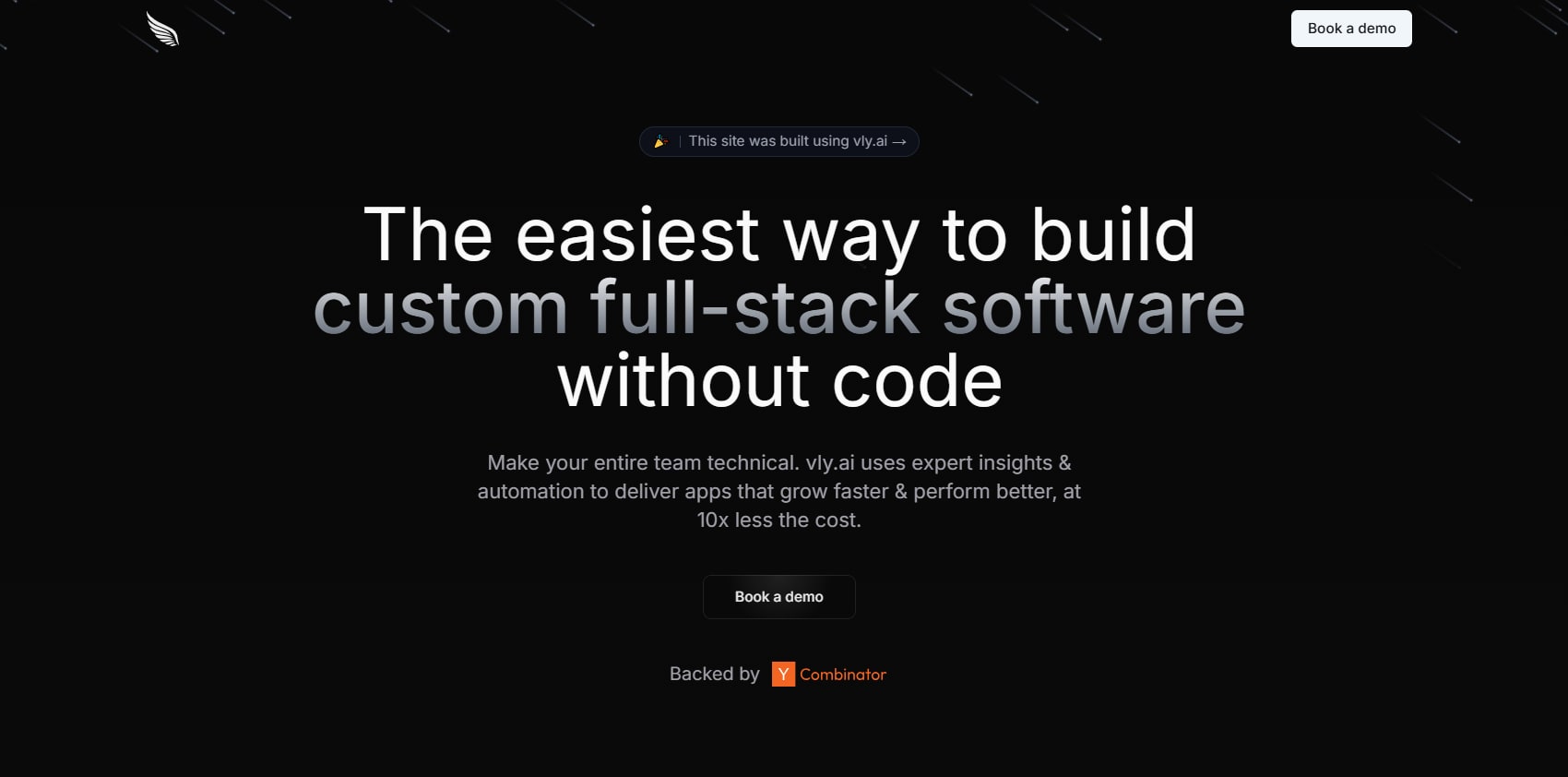
Vly.ai is a full-stack development automation platform that aims to replace the need for a full development team. While traditional web development can be time-consuming and expensive and involves complex management of technical teams, Vly.ai offers an end-to-end solution for building, deploying, managing, and scaling web applications. It combines the highest-ranking swe-bench agent with a no-code platform to streamline and automate the entire development process. Swe-bench agents are AI models trained on large-scale programming data and software engineering best practices. After the AI generates the code, a team of experts (the creators or developers behind Vly.ai) reviews the output. They test the code, check for bugs, and ensure it meets industry standards, performance requirements, and the customer's specific needs. Companies can develop web applications 10x faster and at a 10x lower cost than traditional methods. The platform also enables effortless scaling and iterating on new features quickly.